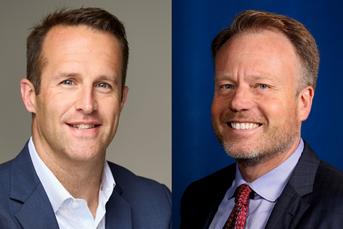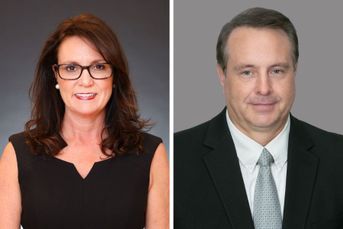Meeting remotely now OK for most clients, and advisors say it helps business
 Sefa Mawuli of Pavlov Financial Planning and Karen Ogden of Envest Asset Management
Sefa Mawuli of Pavlov Financial Planning and Karen Ogden of Envest Asset Management
Discouraged by traffic and comfortable in their homes, people are increasingly amenable to Zoom meetings, a survey finds.
It’s been four years since the world went into lockdown amid Covid, and although restrictions and mandatory remote work are over, people still want to meet remotely with financial advisors.
Even in the absence of the pandemic, that might have been the case with younger investors. But results of a recent survey show that more than half of people 60 and up say they’re open to working with a remote advisor, while less than one in five are totally against it. Those data, from website Comparison Advisor, also show that more than 70 percent of people under 50 like the idea of meeting advisors virtually.
For some, that trend has negated the need for permanent offices.
“I have found that it is easy to develop a relationship on Zoom and everyone (even older clients) has been comfortable with the arrangement,” said Karen Ogden, partner at Envest Asset Management. “It has the bonus of allowing for people to look for specific information online during the conversation and load it onto a secure portal.”
Ogden, based in Vermont, works with a partner in Connecticut and has clients around the country. They rent shared office space when necessary and in some cases meet clients in their homes, Ogden said in an email.
“We have clients as far away as California and do not feel hampered by someone’s geographic location,” she said.
One reason why even local clients prefer to meet online: traffic.
“Our region has been subject to a huge influx of transplants from other states since the pandemic, so traffic has become much worse over the past few years,” said Ron Strobel, whose firm Retire Sensibly is based in Meridian, Idaho.
“We will often meet once in person at the beginning of a client engagement and then switch to a fully remote meeting structure after that initial meet and greet,” Strobel said in an email.
Being able to meet with clients who are outside of commuting distance has helped expand business and made working with people more efficient, said Jason Hamilton, founder of Keep It Simple Financial Planning. The firm’s average client is 62 years old and has about $1.2 million in assets, and most people prefer meeting remotely, he said in an email.
“We have found our productivity increase due to avoiding clients showing up late due to traffic or other hindrances. We are also able to capture our meeting notes more efficiently digitally, which has increased productivity all around,” Hamilton said. “Hiring has been positively impacted by running a virtual financial planning firm. We are able to work with employees in other states and no longer have to find the perfect fit locally.”
Jay Zigmont, who started his firm Childfree Wealth in 2021, has never met a client in person, he said.
“I’ve found that clients appreciate that they can join remotely, share their screen, and make the most of our time,” Zigmont said in an email. “When we meet with couples, it is relatively common for them to each join from a different location, sometimes different states, which would not be possible if we had to meet face-to-face.”
For some types of clients, remote has been the norm for a long time. Sefa Mawuli, whose firm Pavlov Financial Planning specializes in US taxpayers with cross-border connections, as well as tech workers with equity compensation, said nothing really changed because of the pandemic.
“Because of our cross-border financial planning niche, clients seek us out specifically for that, and don’t care that we are virtual,” Mawuli said in an email.
Muni bonds terrific this tax season, says Western Asset strategist
Learn more about reprints and licensing for this article.








